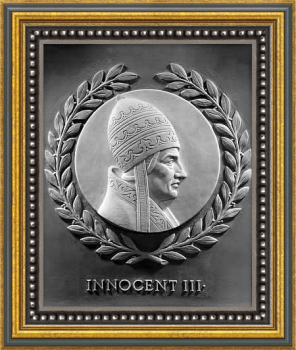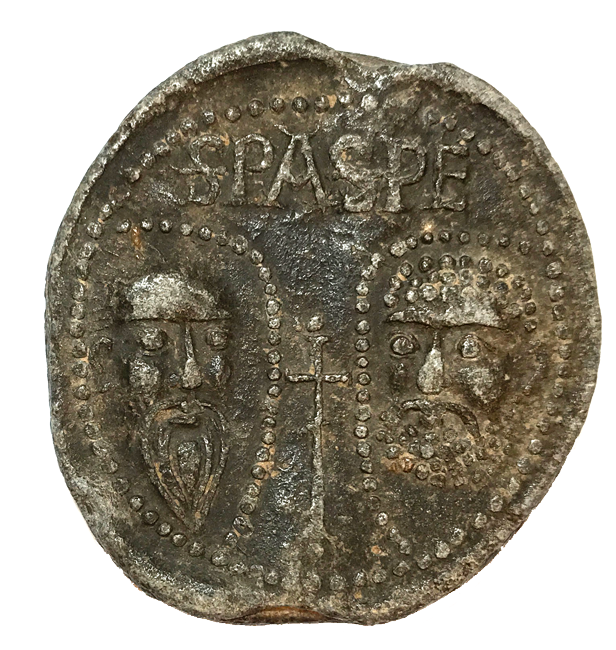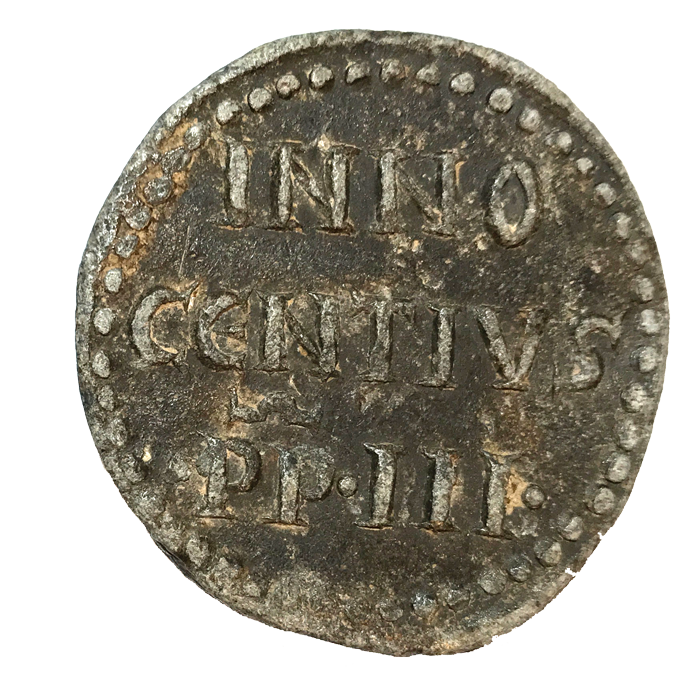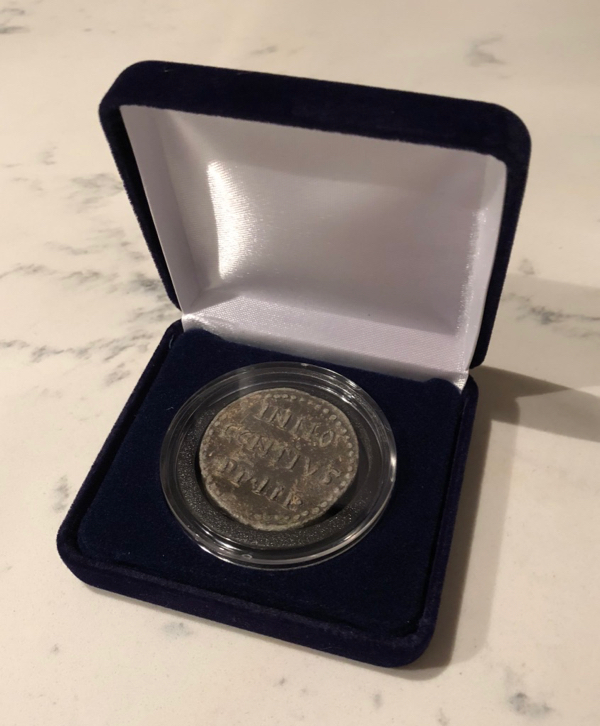Pope Innocent III
Pope Innocent III
Lead Papal Bulla - c1209
Extremely scarce lead papal bulla from the reign of Pope Innocent III, the most significant pope of the Middle Ages. With a 4cm diameter and 5mm thickness, this seal is in fine, even spectacular condition given its age. In custom presentation case.
A papal bull is a specific kind of public decree or charter issued by a pope of the Roman Catholic Church. It is named after the leaden seal (bulla) that was traditionally appended to the end in order to authenticate it. On the obverse it depicted, originally somewhat crudely, the early Fathers of the Church of Rome, the Apostles Saint Peter and Saint Paul, identified by the letters Sanctus PAulus and Sanctus PEtrus (thus, SPA •SPE or SPASPE). St. Paul, on the left, was shown with flowing hair and a long pointed beard composed of curved lines, while St. Peter, on the right, was shown with curly hair and a shorter beard made of dome-shaped globetti (beads in relief). Each head was surrounded by a circle of globetti, and the rim of the seal was surrounded by an additional ring of such beads, while the heads themselves were separated by a depiction of a cross. On the reverse was the name of the issuing pope in the nominative Latin form, with the letters “PP”, for Pastor Pastorum (“Shepherd of Shepherds”). This disc was then attached to the document either by cords of hemp, in the case of letters of justice and executory letters, or by red and yellow silk, in the case of letters of grace, that was looped through slits in the vellum of the document. The term “bulla” derives from the Latin “bullire” (“”to boil””), and alludes to the fact that, whether of wax, lead, or gold, the material making the seal had to be melted to soften it for impression.
Pope Innocent III (1161-1216) reigned from January 1198 to his death in 1216. He was one of the most powerful and influential popes, exerting a wide influence over the Christian states of Europe by claiming supremacy over all of Europe’s kings.
During his reign Pope Innocent called for Christian crusades against Muslim Spain and the Holy Land, as well as the Albigensian Crusade against the Cathars in southern France. In his efforts to suppress the heresy spreading throughout the region, the pope consigned his troops to their commanders, invoking a special benediction to all lauding the divinity of their mission. Asked how they might distinguish their Christian brethren from the heretics, however, Pope Innocent’s directive was unequivocal: “Kill them all. God will spare His own.”




